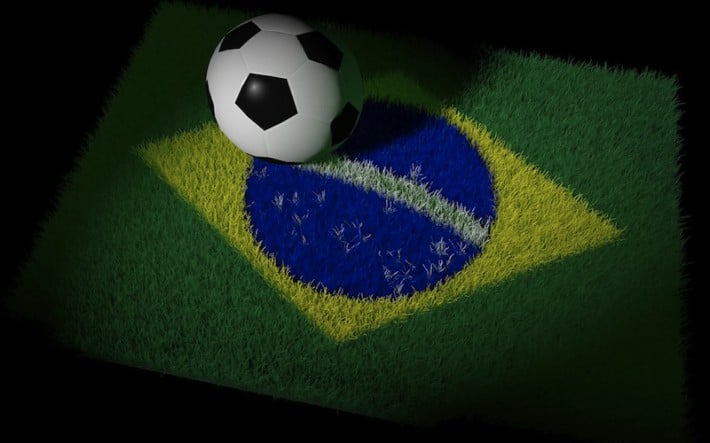The Top Portuguese Slang You Need in Brazil
Oi! Tudo Bem? Are you down with the lingo thrown around on the streets of Brazil? No? Well you should be. As important as it is to master the ins and outs of grammar, if you want to achieve fluency, you have to learn how a language is used by ordinary people. And what represents that better than slang?
Here are some important Brazilian Portuguese slang terms that you should know so that you can understand and join in the conversations.
Table of Contents
By Raul (Flickr) via Wikimedia Commons
Start learning Portuguese with qualified native teachers.
Oi! – Hey!
The word you’re going to hear the most is oi. This expression is familiar for English speakers but is used in Brazil with a completely different meaning. Oi is how Brazilians say hi informally, equivalent to “hey” in English. So don’t get offended if someone directs an “oi!” at you!
E aí, cara? – What’s up, dude?
This is another great informal greeting you can use. Cara literally means face but is also used to mean dude or guy. Note that there are many expressions in Brazil that use cara in totally different contexts, such as ficar de cara, meaning to feel surprised, estar na cara, meaning to be obvious (very similar to something being “right in your face”).
Legal! – Cool! (pronounced “lay-gaow”)
Another word that looks familiar is legal. This is used prolifically by Brazilians and means cool. You can use it for a wide variety of things. Got tickets to see Lollapalooza in Brazil? Legal! Enjoying a beach asado with your mates? Legal! Your new Brazilian friend just bought a skimpy new biquini or sunga (bathing suit) for the beach? Legal!
Valeu! – Thanks!
Coming from the third-person singular conjugation of the verb valer (to be worth), this is a more informal way of saying thanks than obrigado/obrigada. However, it is also used to mean ok, as well as goodbye. Confused? Don’t be. The context should make it pretty clear. Valeu?
Foi mal – My bad!
If you mess up plans with friends, show up on time to a party (don’t you know you should always arrive fashionably late?), or make another mistake and need to apologise, simply say foi mal. The use of this local phrase instead of the more formally correct sinto muito will earn you some extra brownie points.
Gatinha – Babe (pronounced “gah-cheen-ya”)
Literally meaning kitty, gatinha is used in a number of contexts but is commonly used to mean babe or beautiful or sexy girl. You might say to a girlfriend, “como vai, gatinha?” meaning “what’s up babe?” Of course, if you’re saying this to a girl you’ve just met in a club, it takes on another flirtatious meaning.
Chapado – Drunk
Had one (or five) too many caipirinhas during Carnival? Then you’re chapado! Chapado means very drunk or very high.

Image via Pixabay
Pisar na bola – Drop the ball
The Portuguese equivalent to “drop the ball” is pisar na bola, meaning “to step on the ball”. Like in English, it means to let someone down or to mess up. When your Brazilian summer fling shows up late to dinner, you can tell me: “Você pisou na bola.” You messed up.
So remember, don’t stick to what your Portuguese grammar books told you. Brazilian Portuguese is rich with slang and colourful expressions. If you want to learn more fun and useful terms, check out this youtube video!
Start learning Portuguese with qualified native teachers.



